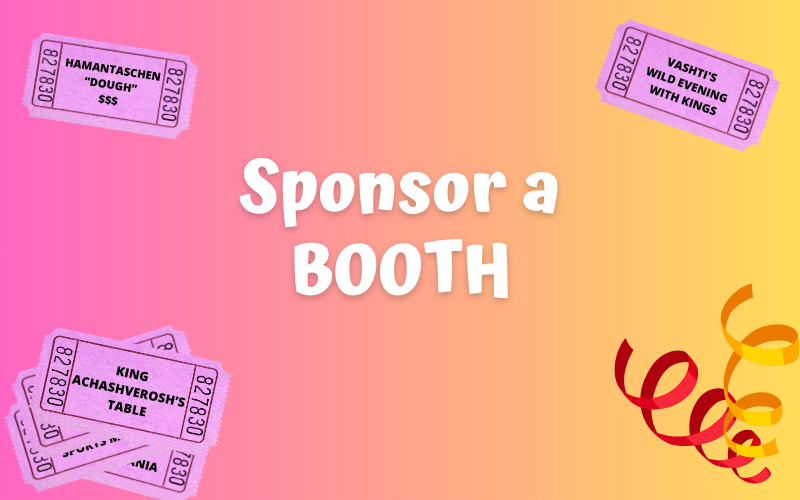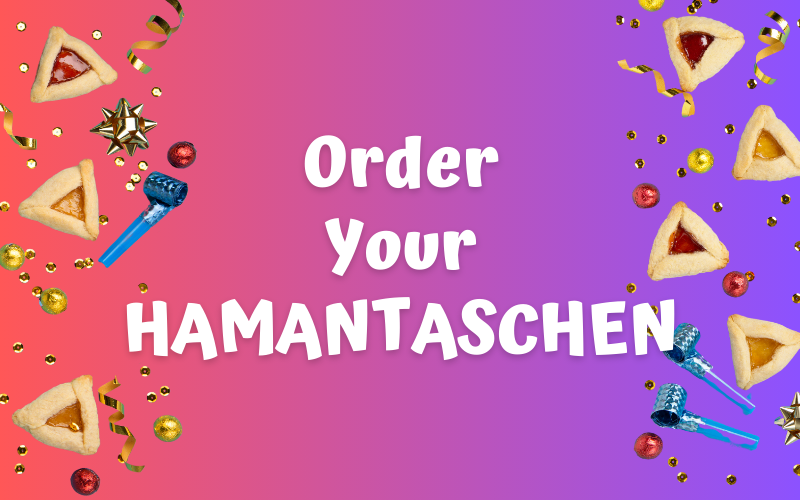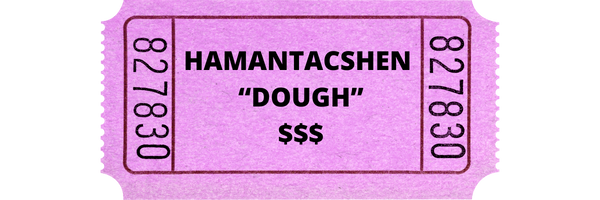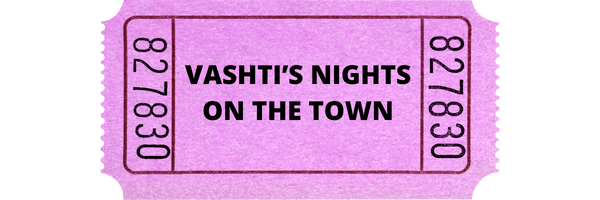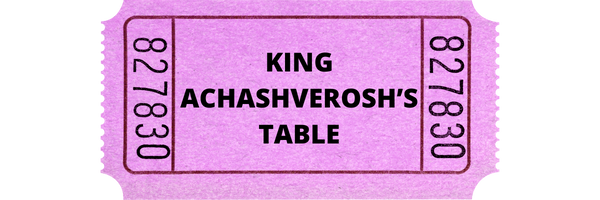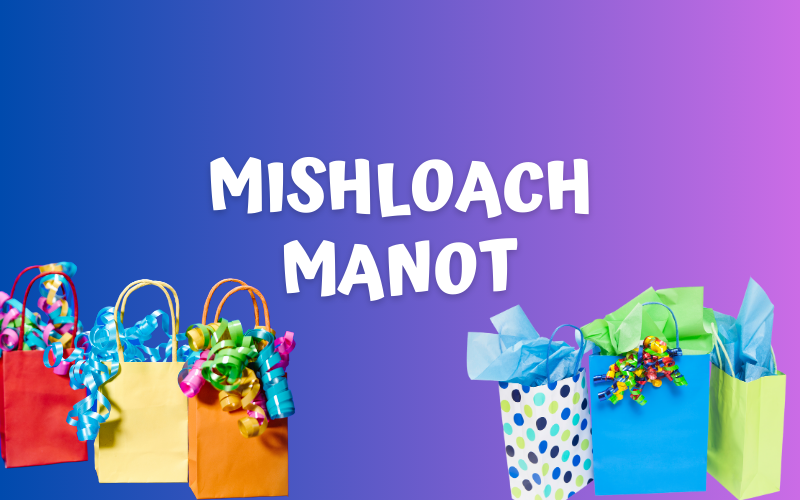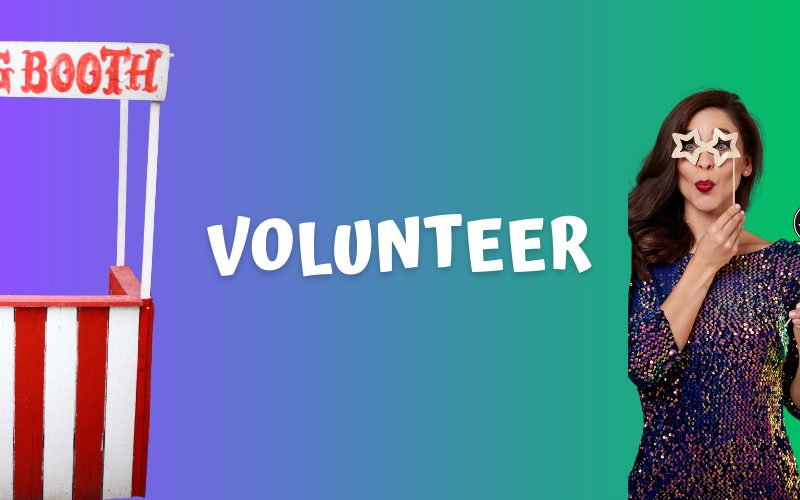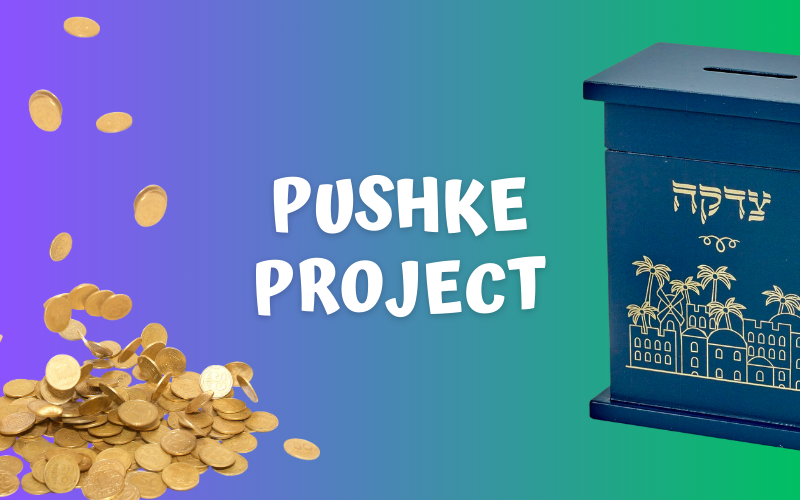Purim Cabaret • Saturday, March 23 • 7:30pm - 9:00pm
Celebrate Purim with singing, a little Megillah reading, and some nosh. We'll end the program with Ma'ariv & Havdalah. Please RSVP so we can plan accordingly!
Purim Services • Sunday, March 24 • 9:30am
Join us for Purim festival services including a full Megillah reading.
Kid Friendly Mini-Megillah Stories and Shtick • Sunday, March 24 • 10:30am
Join us for a Family Purim Megillah reading.
Purim Carnival • Sunday, March 24 • 11:00am - 1:30pm
Mark your calendars for March 24, as our annual Purim Carnival promises a day of joy for everyone! Expect exciting games, face painting, a raffle, and plenty of other activities for all ages. It's the perfect occasion to celebrate Purim, reconnect with familiar faces, and meet new ones. With costumes, feasting, and the spirit of generosity in the air, it's an event not to be missed. Join the Adath community for a memorable, fun-packed holiday celebration!
Mark your calendars for March 24, as our annual Purim Carnival promises a day of joy for everyone! Expect exciting games, face painting, a raffle, and plenty of other activities for all ages. It's the perfect occasion to celebrate Purim, reconnect with familiar faces, and meet new ones. With costumes, feasting, and the spirit of generosity in the air, it's an event not to be missed. Join the Adath community for a memorable, fun-packed holiday celebration!
|
We are looking for donations to sponsor a Purim carnival booth!
Please contact Rachel Sher with any questions. |
With Purim just around the corner, it's time to order those delicious Hamantaschen. But don't wait too long - all orders must be placed by March 14 in order to guarantee your order. Order Here!
|
Adath Purim Raffle
All proceeds support Adath's youth department. Purchase Purim Raffle tickets online by Thursday, March 21 or at Adath's Purim Carnival on Sunday, March 24.
The more tickets you buy, the better chances you have to win any or all of these prizes:
All proceeds support Adath's youth department. Purchase Purim Raffle tickets online by Thursday, March 21 or at Adath's Purim Carnival on Sunday, March 24.
The more tickets you buy, the better chances you have to win any or all of these prizes:
|
A 50/50 split the pot cash prize!
|
Total value: $500
Enjoy a beautiful getaway with a night at a Stillwater Airbnb, along with gift certificates to nearby Stillwater restaurants and unique experiences! |
Total value: over $700
Theater tickets, sports tickets, a hotel stay, massages, and more! Perfect for a date night or a night out with friends. |
Total value: $1000
Gift cards to delicious restaurants all across the Twin Cities metro area! Restaurants include but are NOT limited to: Redstone, Café Latte, Cecil's, Utepils, and more! |
|
In lieu of ordering them ahead of time this year, we will have a mishloach manot assembly booth at the Carnival! Stop by and make a Purim gift bag for your friends and family.
|
Purim Pushke Project
|
The Adath Hesed Committee has selected the Masorti Kibbutz Hannaton and the Masorti Foundation funded Hannaton Educational Center located in the Lower Galilee as this year’s beneficiaries, for our Purim Pushke Fundraiser. The funds raised will help them to continue to house and assist displaced Eritrean refugees from the border town of Sderot on October 7, less than a mile from Gaza. The Kibbutz and the Center voluntarily invited the refugees into their community. Many of these refugees who were subjected to genocide and torture in the past, have now been re-traumatized.
Because of their status as applicants for asylum in Israel, they are not eligible for Israeli government assistance. This community already faces food insecurity and poverty. The impact of October 7 is having very dramatic consequences for them. They came from Sderot with almost nothing, only what they could carry. Kibbutz Hannaton and the Educational Center provides them with housing, groceries, clothing, formula and diapers for their babies. They also provide medical and psychological care and social workers. The children go to school there, and they try to arrange to find employment for the refugees. They have found a safe haven and aid for now, until they will be able to return to Sderot. Contributing to fund the assistance provided at Kibbutz Hannaton to help the refugees is a great mitzvah. Please make a donation at the Purim Pushke Project tables at the March 23 Saturday evening Purim Parties & Magillah Readings and at the Sunday March 24 Adath USY’s Purim Carnival! Checks can be made out to “Adath Jeshurun Hesed” with “Masorti-Hannaton” written on the note line. Here is a link to an article describing the story of the refugee's plight, and the remarkable efforts at Kibbutz Hannaton to help them: https://www.timesofisrael.com/ignored-by-the-state-eritreans-from-sderot-find-temporary-shelter-in-northern-kibbutz/ |
Purim Vocabulary
Grogger — Pronounced GRAH-gur. Yiddish for “noisemaker.” Groggers are used during the reading of the megillah (see below). When the reader speaks the name of Haman the congregation tries to drown out the evil name using noisemakers and booing.
Hamantaschen — Pronounced HAH-mun-TAHSCH-un. Yiddish for “Haman’s pockets,” known in Hebrew as “oznay Haman” meaning “Haman’s ears.” A triangular cookie with a filling (typically jam or poppyseed) inside, traditionally eaten on Purim .
Matanot l’evyonim — Pronounced mah-tah-NOTE leh-ehv-yon-EEM. Hebrew for “gifts to the poor.” It is a commandment to give to the poor on Purim.
Megillah — Pronounced muh-GHILL-uh, or meh-ghee-LAH. Hebrew for scroll, it is usually used to refer to the scroll of Esther (Megillat Esther, also known as the Book of Esther), a book of the Bible traditionally read twice during the holiday of Purim. Megillah scrolls are often illuminated.
Mishloah manot, shlah manot — Pronounced mee-SHLOH-ahkh mah-NOTE, SHLAHKH mah-NOTE (or SHAH-lahk MAH-nohs). Hebrew for “sending portions to one another.” A phrase taken from the Megillah that commands the Jewish community to give small packages of food or gifts to friends on the day of Purim.
Purim — Hebrew for “lottery,” or "Lots" that are put up for sale at auction, and the name of the holiday.
Seudah — Pronounced seh-ooh-DAH (oo as in boot) or SOO-dah. Hebrew for feast. There is a commandment to have a festive meal, or a seudat mitzah, on the day of Purim. Wine and liquor are traditionally served at the festive meal.
Shpiel (sometimes spelled spiel) — Pronounced SHPEEL. Yiddish for “play” or “skit.” A Purim shpiel is a humorous and dramatic presentation of the events outlined in the Book of Esther, often performed on Purim eve.
Taanit Esther — Pronounced tah-ah-NEET EH-ster. Hebrew for “the fast of Esther.” A fast from sunrise to sunset on the day before Purim, it commemorates the fast that Queen Esther and the Jews of Shushan undertook.
Tzedakah — Pronounced tzuh-DAH-kah. Hebrew for “righteousness” or “justice,” but it is often interpreted as charity. It is a commandment to give tzedakah to those in need on Purim.
Pushke — Yiddish, from the Polish word puszka, which means tin can. A box in the home or the synagogue used to collect money for donation to the poor.
Hamantaschen — Pronounced HAH-mun-TAHSCH-un. Yiddish for “Haman’s pockets,” known in Hebrew as “oznay Haman” meaning “Haman’s ears.” A triangular cookie with a filling (typically jam or poppyseed) inside, traditionally eaten on Purim .
Matanot l’evyonim — Pronounced mah-tah-NOTE leh-ehv-yon-EEM. Hebrew for “gifts to the poor.” It is a commandment to give to the poor on Purim.
Megillah — Pronounced muh-GHILL-uh, or meh-ghee-LAH. Hebrew for scroll, it is usually used to refer to the scroll of Esther (Megillat Esther, also known as the Book of Esther), a book of the Bible traditionally read twice during the holiday of Purim. Megillah scrolls are often illuminated.
Mishloah manot, shlah manot — Pronounced mee-SHLOH-ahkh mah-NOTE, SHLAHKH mah-NOTE (or SHAH-lahk MAH-nohs). Hebrew for “sending portions to one another.” A phrase taken from the Megillah that commands the Jewish community to give small packages of food or gifts to friends on the day of Purim.
Purim — Hebrew for “lottery,” or "Lots" that are put up for sale at auction, and the name of the holiday.
Seudah — Pronounced seh-ooh-DAH (oo as in boot) or SOO-dah. Hebrew for feast. There is a commandment to have a festive meal, or a seudat mitzah, on the day of Purim. Wine and liquor are traditionally served at the festive meal.
Shpiel (sometimes spelled spiel) — Pronounced SHPEEL. Yiddish for “play” or “skit.” A Purim shpiel is a humorous and dramatic presentation of the events outlined in the Book of Esther, often performed on Purim eve.
Taanit Esther — Pronounced tah-ah-NEET EH-ster. Hebrew for “the fast of Esther.” A fast from sunrise to sunset on the day before Purim, it commemorates the fast that Queen Esther and the Jews of Shushan undertook.
Tzedakah — Pronounced tzuh-DAH-kah. Hebrew for “righteousness” or “justice,” but it is often interpreted as charity. It is a commandment to give tzedakah to those in need on Purim.
Pushke — Yiddish, from the Polish word puszka, which means tin can. A box in the home or the synagogue used to collect money for donation to the poor.
Support our congregation this Purim with a gift of any size.
Todah Rabah and Happy Purim!
Todah Rabah and Happy Purim!

